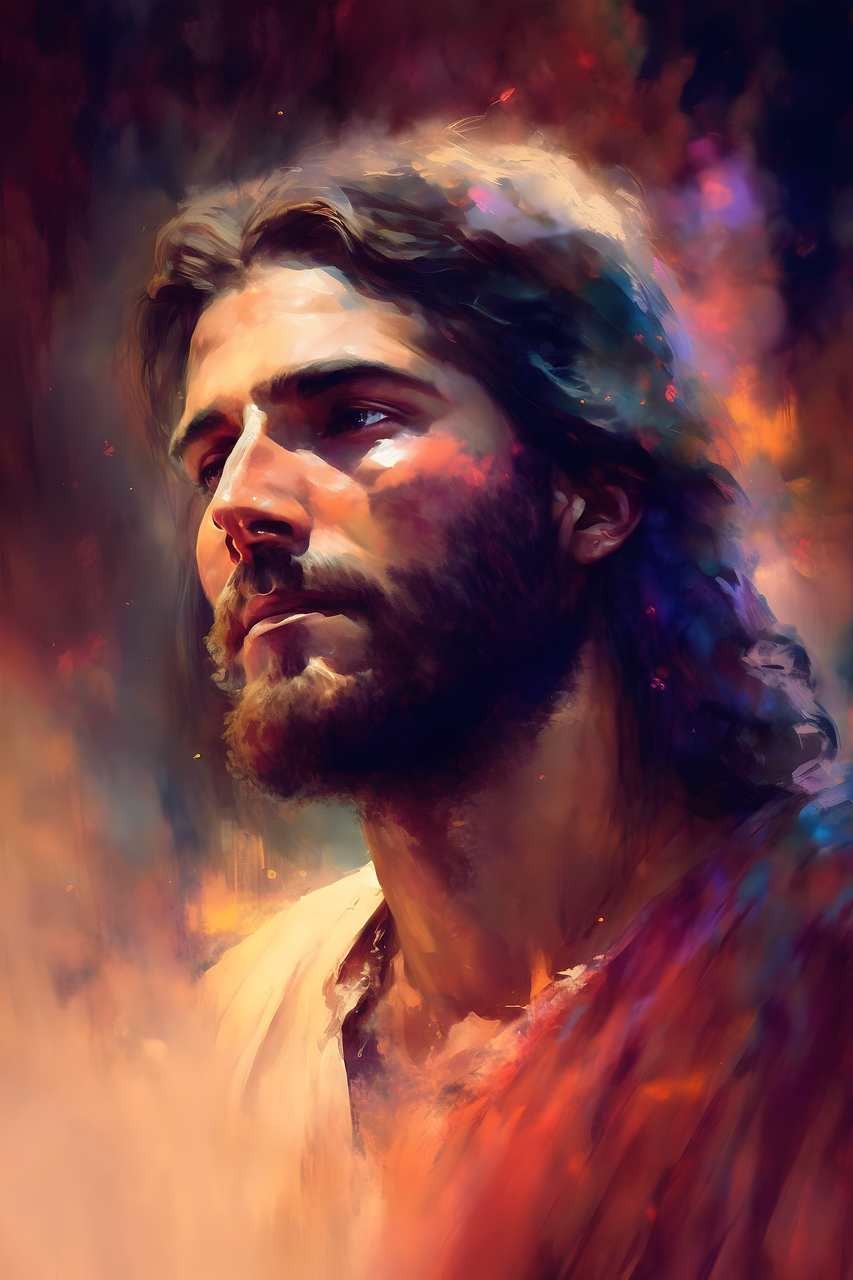Introduction: Exploring the Connection between Jesus and Exodus 35 as Messianic Prophecy in the Torah
The concept of Messianic prophecy holds great significance in both Christian and Jewish faiths. Messianic prophecies are believed to be predictions in the Hebrew Bible (or Old Testament) that foretell the coming of a future anointed one, known as the Messiah, who will bring redemption, restoration, and salvation. These prophecies are seen as a crucial link between the Hebrew Bible and the life and teachings of Jesus of Nazareth.
Exodus 35, in particular, has been a subject of interest in relation to Jesus and Messianic prophecy. This chapter is part of the narrative of the Israelites’ journey to the Promised Land and contains potential references to the coming Messiah. Exploring the possible connections between Jesus and Exodus 35 can provide insights into the Messianic nature of Jesus and the fulfillment of prophecy.
Exodus 35 is set within the larger context of the Torah, the first five books of the Hebrew Bible. It describes the instructions given to Moses and the Israelites regarding the construction of the Tabernacle, a portable sanctuary for worship. This chapter is significant as it highlights the importance of craftsmanship, worship, and the anointing of individuals with the Spirit of God.
Within Exodus 35, there are verses that some scholars interpret as potential Messianic prophecies. For example, Exodus 35:31-35 describes the anointing and filling of Bezalel with the Spirit of God, enabling him to have wisdom, understanding, and skill in all kinds of crafts. Some scholars view this anointing as a foreshadowing of Jesus’ role as the Messiah, who would possess divine wisdom and be filled with the Spirit of God.
Additionally, the symbolism and imagery present in Exodus 35 can be interpreted as prophetic references to Jesus. The Tabernacle itself can be seen as a foreshadowing of Jesus, who is described as the dwelling place of God among humanity. The various elements and rituals associated with the Tabernacle, such as the anointing oil and the consecration of the priests, may hold symbolic significance in relation to Jesus’ ministry and role as the Messiah.
However, it is important to note that there are debates and varying interpretations among scholars regarding the Messianic nature of these prophecies in Exodus 35. Some scholars see these connections as coincidental or symbolic rather than direct prophecies of Jesus. These debates highlight the complex nature of interpreting ancient texts and the diversity of views within scholarly circles.
Jesus’ Life and Teachings in Relation to Torah Prophecies
When examining the life and teachings of Jesus, numerous connections can be drawn between his actions and the prophecies found in Torah. Jesus’ birth, ministry, death, and resurrection align with various themes and messages present in Exodus 35.
For instance, Jesus’ ministry reflects the importance of craftsmanship and worship emphasized in Exodus 35. Jesus himself was a carpenter by trade, and his teachings often incorporated metaphors related to craftsmanship, such as building a strong foundation or being refined like precious metals. This parallel between Jesus’ earthly profession and the themes found in Exodus 35 suggests a deeper connection between Jesus’ life and the prophecies in Torah.
Furthermore, Jesus’ teachings align with the moral and ethical principles outlined in Exodus 35. Just as the Israelites were instructed to follow God’s commandments and live in a manner pleasing to Him, Jesus emphasized the importance of love, justice, and compassion in his teachings. His teachings on loving one’s neighbor, caring for the poor and oppressed, and living a life of righteousness resonate with the values and principles found in Exodus 35.
These connections between Jesus’ life and teachings and the prophecies in Torah highlight his role as the ultimate fulfillment of Messianic prophecies. Jesus’ actions and teachings reflect the foreshadowing found in Exodus 35, providing evidence of his Messianic identity.
Furthermore, Jesus’ life and ministry fulfill other prophecies found in the Torah beyond Exodus 35. For example, Jesus’ birth in Bethlehem aligns with the prophecy in Micah 5:2, which states that the Messiah will come from Bethlehem. His crucifixion and resurrection fulfill the foreshadowing of the Passover lamb and the sacrificial system in the Torah, symbolizing his role as the ultimate sacrifice for the redemption of humanity.
The Significance of Messianic Prophecies in the Jewish Faith
Exodus 35 and other Messianic prophecies hold immense significance in the Jewish faith. The Messiah, or Mashiach in Hebrew, is seen as a future anointed one who will bring about the redemption and restoration of the Jewish people. In Jewish theology and tradition, the coming of the Messiah is eagerly anticipated and holds the promise of a better future.
The Jewish faith places great importance on the Torah, which contains the Messianic prophecies. These prophecies serve as a source of hope and guidance for the Jewish people, inspiring them to live in accordance with God’s commandments and to anticipate the fulfillment of these prophecies.
Apart from Exodus 35, there are other Messianic prophecies in the Torah that are believed to point to the Messiah. For example, prophecies in the books of Isaiah and Psalms are often interpreted as referring to the coming of the Messiah. These prophecies speak of a future descendant of King David who will establish a kingdom of peace and justice.
However, it is important to note that there is a diversity of interpretations and debates within the Jewish community regarding these Messianic prophecies. Different Jewish groups may have varying beliefs and expectations regarding the Messiah and the fulfillment of these prophecies. The interpretation of these prophecies can be influenced by historical events, socio-political factors, and theological perspectives.
In addition to the Messianic prophecies in the Torah, Jewish tradition also includes teachings from the Talmud, Midrash, and other rabbinic writings that provide further insights into the Messiah and the Messianic era. These sources offer interpretations, discussions, and debates surrounding the nature and role of the Messiah in Jewish theology.
Interpretations and Debates Surrounding the Connection between Jesus and the Torah
The connection between Jesus and the Torah, particularly the Messianic prophecies, has been a subject of debate and interpretation among different religious and scholarly groups. Christian, Jewish, and academic perspectives offer various interpretations and arguments regarding Jesus’ fulfillment of Messianic prophecy in the Torah.
Christian perspectives generally assert that Jesus is the fulfillment of Messianic prophecy in the Torah. They argue that Jesus’ life, teachings, death, and resurrection align with the prophecies found in the Hebrew Bible, including Exodus 35. Christians see the connections between Jesus and the Torah as evidence of his identity as the Messiah.
On the other hand, Jewish perspectives may differ in their interpretation of Messianic prophecy. Some Jewish scholars do not view Jesus as the Messiah predicted in the Torah and emphasize alternative understandings of Messianic prophecies. They may argue that the prophecies in Exodus 35 and other parts of the Torah have a specific historical and cultural context that may not directly relate to Jesus.
Furthermore, within Christian perspectives, there are variations in the interpretation of Messianic prophecies and the connection between Jesus and the Torah. Different Christian denominations and theologians may emphasize different aspects of the prophecies and offer diverse explanations for the fulfillment of these prophecies in Jesus.
Academic perspectives offer a scholarly examination of the connection between Jesus and the Torah. These perspectives may consider historical, textual, and theological analysis to explore the relationship between Jesus and the Messianic prophecies. They acknowledge the complexity of interpreting ancient texts and the diversity of beliefs and interpretations.
Understanding the debates and interpretations surrounding the connection between Jesus and the Torah requires an examination of the historical and cultural context of the time period. The diverse Messianic expectations among different Jewish groups during the time of Jesus, as well as the influence of historical events and socio-political factors, shape the interpretations of Messianic prophecies.
In conclusion, the potential connections between Jesus and the prophecies in Exodus 35 as Messianic prophecy in the Torah provide a fascinating subject of study and reflection. The life and teachings of Jesus align with the themes and messages found in Exodus 35, suggesting a deeper connection between Jesus and the Messianic prophecies. However, these connections are subject to interpretation and debates among scholars and religious groups. Respectful dialogue and scholarly exploration of this topic are essential in gaining a deeper understanding of the intricate tapestry between Jesus and the Messianic prophecies in the Torah.
#Exodus35 #MessianicProphecy #JesusAndTorah #MessianicExpectations #BiblicalInterpretation #PropheciesFulfilled #MessiahInTorah #ReligiousDebate


